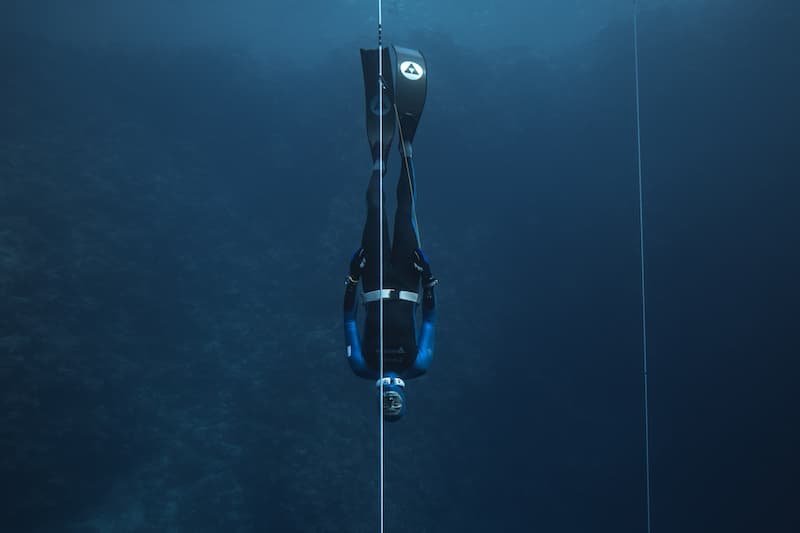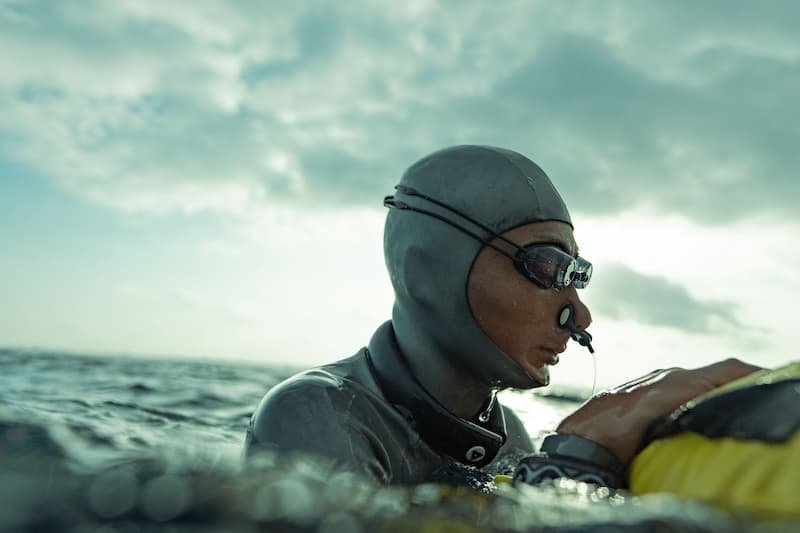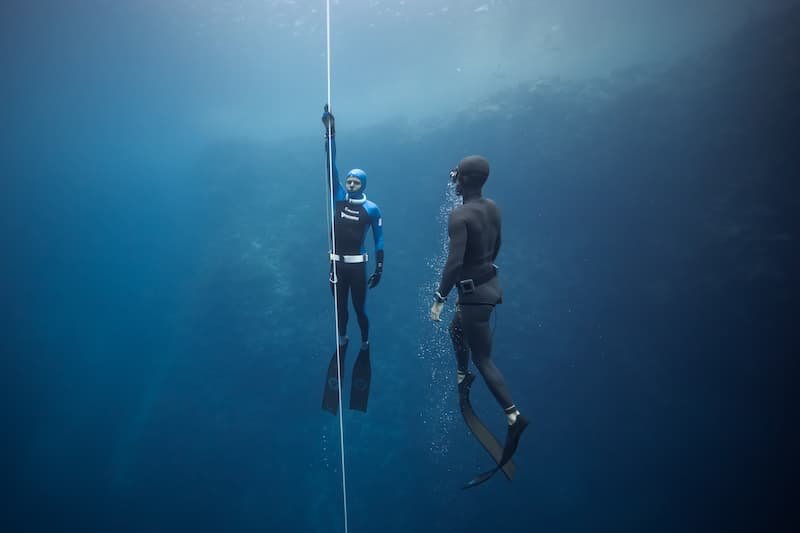
 Katie Wood
Freediver, Writer, Explorer
Katie Wood
Freediver, Writer, Explorer

 Katie Wood
Freediver, Writer, Explorer
Katie Wood
Freediver, Writer, Explorer
Freediving confronts participants with profound challenges that extend far beyond the physical act of breath-holding and diving. Central to this experience is the intricate dance with fear—the primal, instinctual response that whispers caution in the face of deep waters and breathless depths.
The fear associated with freediving finds its roots in deep-seated human instincts. Since ancient times, the ocean has symbolized mystery and danger, its vastness and unfathomable depths invoking a sense of awe tinged with apprehension. This primal fear of the unknown, compounded by the natural human aversion to suffocation and drowning, forms the foundational challenge for freedivers.
Psychologically, the prospect of descending into the ocean depths without the aid of conventional breathing apparatus triggers a cascade of responses. Anxiety may surge as the mind contemplates the immense pressures and potential hazards that lie beneath the surface. Imaginations may conjure images of isolation, darkness, and the unsettling sensation of being out of one's natural element. These fears are not irrational but rather a reflection of the body's innate survival mechanisms, urging caution and vigilance in the face of perceived danger.

Within the freediving community, fear is not viewed as an insurmountable obstacle but rather as a catalyst for personal growth and achievement. Freedivers harness their fears, transforming them into sources of motivation and determination. The very act of confronting and overcoming these anxieties becomes a testament to inner strength and resilience.
Preparation plays a pivotal role in mitigating fear in freediving. Through rigorous training regimes, divers gradually acclimate their bodies and minds to the unique challenges of breath-holding and underwater exploration. Techniques such as breath-hold exercises, relaxation methods, and visualization practices are integral in cultivating mental resilience and preparing divers to navigate the psychological pressures of deep dives.
Education also plays a crucial role in understanding and managing fear. Freedivers learn about the physiological responses of the body to underwater environments, gaining insights into how breath-holding affects oxygen levels and buoyancy. This knowledge not only enhances safety but also empowers divers to approach their dives with informed confidence.

Trust is a cornerstone in overcoming fear in freediving. Divers trust in their own capabilities, honed through disciplined training and experience, to remain calm and focused under pressure. They also place trust in meticulously maintained equipment, knowing that their gear is reliable and capable of withstanding the rigorous demands of deep dives.
Beyond the physical challenges, freediving is a profound psychological journey. It demands introspection and self-awareness as divers confront their fears head-on, peeling away layers of doubt and uncertainty to uncover inner reserves of courage and determination. Each dive becomes a testament to personal growth, offering a transformative experience that transcends the boundaries of fear and expands the horizons of possibility.

In essence, understanding the fear associated with freediving involves recognizing its deep-seated origins in human psychology and evolutionary biology. It involves acknowledging the primal instincts that caution against the unknown and suffocation. However, within the freediving community, fear is reframed as a stepping stone rather than a barrier—a force that, when met with preparation, training, and community support, becomes a catalyst for personal empowerment and profound achievement. Freediving teaches us not to suppress fear but to embrace it, transforming it into a source of motivation and strength on the journey to deeper waters and greater self-discovery.